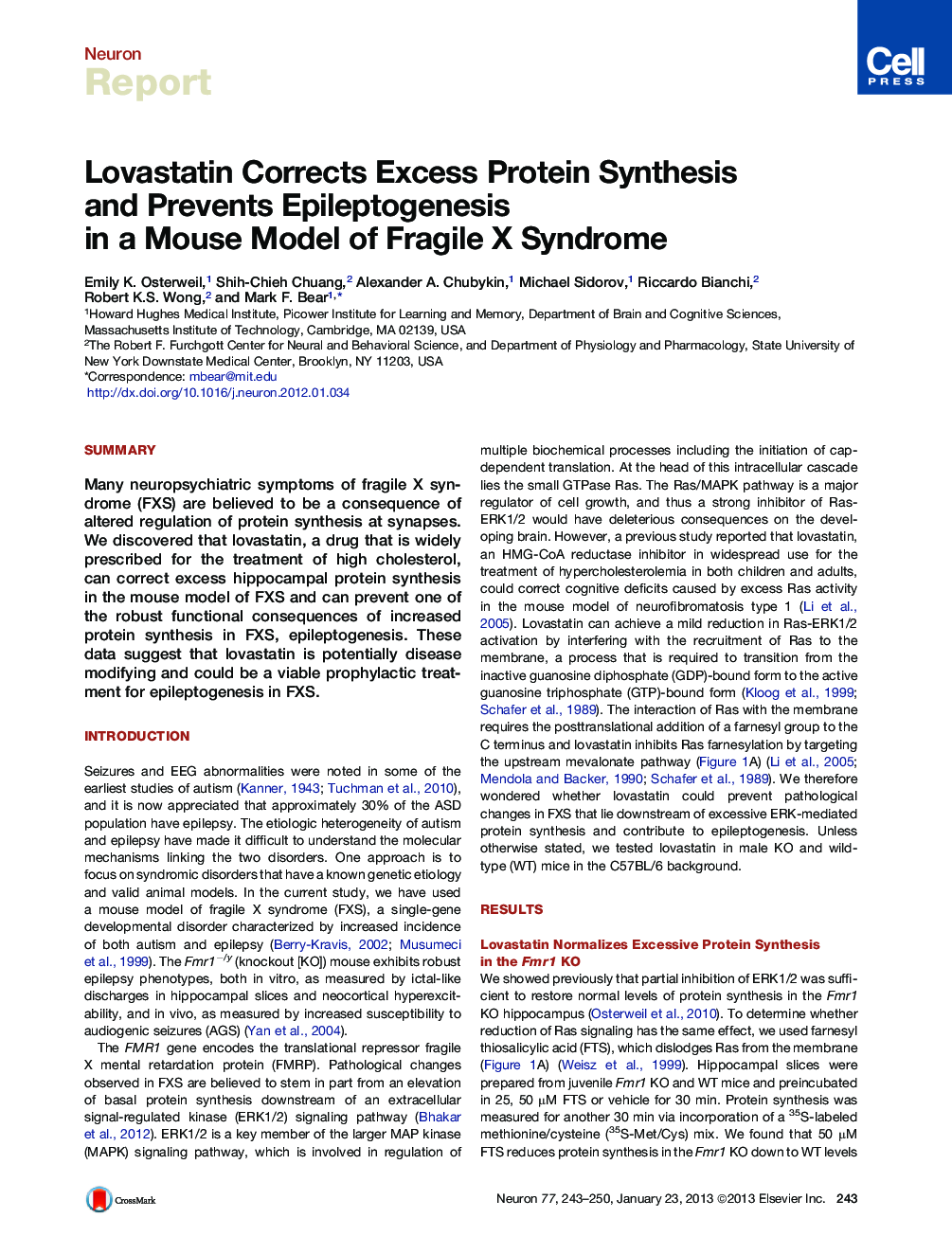| Article ID | Journal | Published Year | Pages | File Type |
|---|---|---|---|---|
| 4321174 | Neuron | 2013 | 8 Pages |
SummaryMany neuropsychiatric symptoms of fragile X syndrome (FXS) are believed to be a consequence of altered regulation of protein synthesis at synapses. We discovered that lovastatin, a drug that is widely prescribed for the treatment of high cholesterol, can correct excess hippocampal protein synthesis in the mouse model of FXS and can prevent one of the robust functional consequences of increased protein synthesis in FXS, epileptogenesis. These data suggest that lovastatin is potentially disease modifying and could be a viable prophylactic treatment for epileptogenesis in FXS.
► Epilepsy is one consequence of excess protein synthesis in the Fmr1−/y mouse ► Lovastatin inhibits Ras-ERK1/2 and normalizes protein synthesis ► Lovastatin prevents epileptogenesis in the Fmr1−/y mouse ► Lovastatin, approved for human use, is potentially disease modifying in FXS
